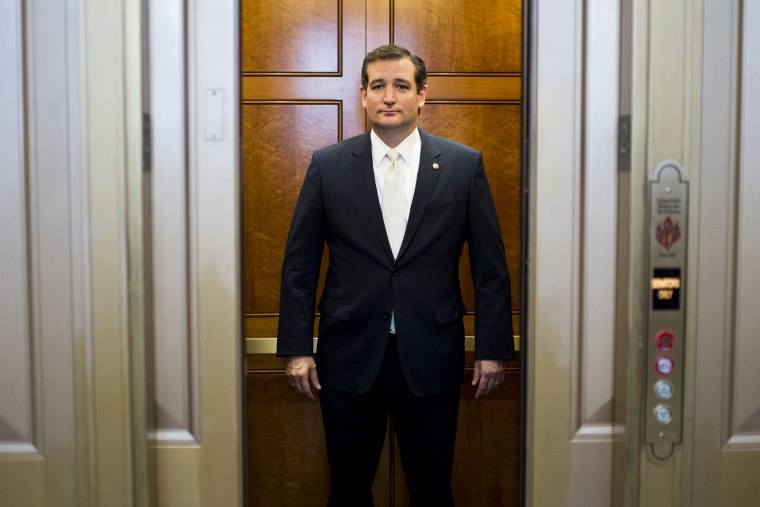Politicians and pundits often say "9/11 changed everything." In Sen. Ted Cruz's case, it apparently even meant a change in his taste in music. The Texas Republican, who announced Monday he would seek the GOP nomination for president in 2016, told the hosts of "CBS This Morning" on Tuesday that the 2001 terrorist attacks on the World Trade Center in New York City and the Pentagon turned him into a modern-day version of the John Lithgow character from "Footloose."
[T]he thing about classic rock is that it mostly didn't respond to 9/11 at all, since most of it was written in the decades beforehand. To the extent that it did respond, it was in keeping with the patriotic spirit of the moment. Many of the biggest classic rock stars participated in "America: A Tribute to Heroes" ten days after the attacks. As the name of the event implies, the event was not exactly a Chomsky-esque exercise in attributing the attacks to blowback caused by imperial overstretch. The single biggest classic rock star, Paul McCartney, wrote a song the next day, "Freedom," the proceeds of which he donated to families of the victims and the NYPD. It is true, however, that, in general, rock stars did not reach the jingoist heights of their country brethren. The rockers were mourning victims and celebrating freedom; country stars were demanding blood. That was a real partisan cultural divide. That divide overlaid a related cultural trend during the Bush years, during which the Republican Party defined itself as the representative of “real America,” as represented by pickup trucks, NASCAR, small towns, country music, and the most rigidly nationalistic forms of patriotism. It is easy to forget now just how important (and frequently ridiculous)) heartland cultural authenticity, and corresponding disdain for decadent urban intellectual elites, was to Republican Party identification at the time.
